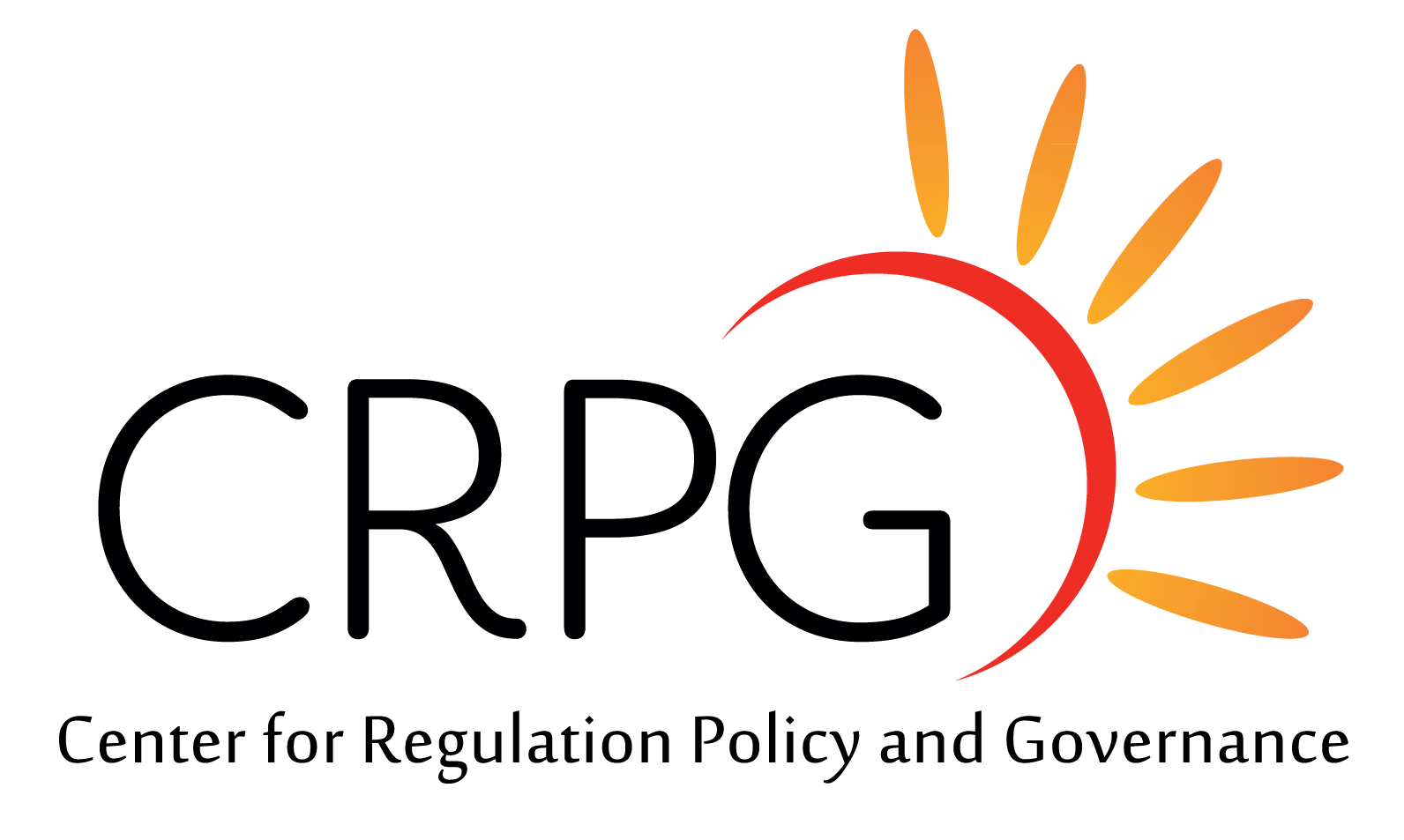Rethinking International Water Law: CRPG Director Proposes Water Tenure Framework for River Basin Governance

A comprehensive new study published in the Journal of Energy & Natural Resources Law challenges traditional approaches to transboundary water management by introducing a water tenure framework that recognizes the complex relationships between communities and water resources. The research, led by Dr. Mohamad Mova AlAfghani, Director of the Center for Regulation, Policy and Governance, argues that conventional international water law's focus on state-to-state relations overlooks the diverse formal and informal arrangements through which millions of people actually access and use water.
Dr. AlAfghani, who holds a PhD from the University of Dundee's UNESCO Center for Water Law, Policy and Science, collaborated with colleagues Jing Lee from the National University of Malaysia and Yumiko Yasuda from Uppsala University to develop the water tenure approach as a practical tool for implementing international norms applicable to river basins. Their framework adopts the Food and Agriculture Organization of the United Nations (FAO) definition of water tenure as the relationship between people, whether individuals or groups, with respect to water resources, deliberately encompassing arrangements that may be deemed illegal or informal under national legal systems but nonetheless sustain millions of livelihoods.
The research demonstrates how traditional international water law, preoccupied with allocation rights between sovereign states, fails to capture the reality that river basins consist of different communities and ecosystems with interests that do not always align with officially defined state interests. In Indonesia's Kahayan Catchment in Central Kalimantan, for example, the water tenure mapping conducted by Dr. AlAfghani revealed diverse customary practices of the Dayak Ngaju tribes, including the Pukung Pahewan system of protected water bodies controlled by traditional guardianship, the Handil network of collectively managed canals and farmland, and the Tatas channels through which forest resource access is regulated by families who levy tolls on products transported through their waterways.
These customary tenure arrangements, documented through literature review and fieldwork interviews, represent complex governance systems that have sustained communities for generations yet remain largely invisible in formal water allocation frameworks. The study found that most water tenure in the Kahayan Catchment operates either as de minimis rights requiring no license due to small volumes, or as customary practices recognized through tradition rather than statute. Similarly, in Palestine, the research team documented how springs are divided based on water turns lasting from minutes to hours, a customary tenure system predating formal water law that continues to govern access for subsistence farming.
The water tenure approach offers states a systematic methodology for implementing multiple international obligations simultaneously. For environmental flows required under the Convention on Biological Diversity and Ramsar Convention on Wetlands, water tenure assessments identify ecological water needs and map how alterations to flow regimes affect downstream uses from agriculture to fisheries. For the human right to water recognized under the International Covenant on Economic, Social and Cultural Rights, the approach pinpoints communities relying on informal arrangements for drinking water and subsistence farming, enabling states to assess whether upstream developments violate these rights.
Indigenous peoples and local communities emerge as central stakeholders in the proposed framework. The study documents growing state recognition of Indigenous water rights in countries from Australia to Canada, Colombia to New Zealand, where legal personhood for rivers, co-governance arrangements, and constitutional protections for ancestral waters reflect evolving norms. Water tenure mapping provides the empirical foundation for implementing these principles by systematically identifying Indigenous territories, traditional uses, and cultural relationships with water that international instruments like the UN Declaration on the Rights of Indigenous Peoples call upon states to respect.
Corporate actors face increasing due diligence obligations under frameworks like the UN Guiding Principles on Business and Human Rights and the European Union Corporate Sustainability Due Diligence Directive, both of which require companies to identify and address impacts on human rights including water access. Dr. AlAfghani and colleagues argue that water tenure assessments enable corporations to move beyond formal permit holders to understand the full spectrum of water users whose livelihoods their projects may affect, thereby meeting their responsibility to respect rights that may be based on customary practice, explicit promises, or general notions of fairness rather than statutory law alone.
The principle of equitable and reasonable utilization, cornerstone of the 1997 UN Watercourses Convention, requires states to weigh factors including social and economic needs, dependent populations, and existing uses when allocating shared water resources. Water tenure provides the granular data necessary for this balancing process by documenting not just large-scale irrigation schemes and hydropower installations captured in state registries, but also the small-scale diversions supporting subsistence farming, the community-based water supply systems serving thousands of villages without formal licenses, and the fishing grounds governed by customary access rules. This comprehensive picture enables states to negotiate water sharing arrangements that reflect the actual dependencies and vulnerabilities within their territories.
Implementation challenges remain substantial, as the research acknowledges. Nations sharing transboundary basins adhere to diverse legal traditions that complicate mutual recognition of water tenure systems, with customary rights legitimate in one country potentially unrecognized across borders. States may perceive transparency about internal water uses as exposing vulnerabilities in negotiations, while powerful industrial users and large agricultural enterprises often resist reforms that could redistribute water rights more equitably. Nevertheless, the growing demand for corporate sustainability due diligence, combined with the procedural requirements of multilateral environmental agreements, creates pressure for the systematic stakeholder identification and impact assessment that water tenure methodologies provide.
The study represents a shift from viewing international water law as a specialized, self-contained regime focused narrowly on allocation between states, toward recognizing river basins as governed by multiple overlapping legal frameworks including environmental conventions, human rights instruments, and corporate responsibility standards. By making visible the complex web of relationships through which water actually sustains communities, the water tenure approach offers a practical mechanism for states to move beyond traditional Westphalian conceptions of sovereignty toward governance that acknowledges diverse interests and values in an increasingly interconnected world.
Full Research Paper: Potential contribution of the water tenure approach to the implementation of international norms applicable to river basins, published in Journal of Energy & Natural Resources Law (September 5, 2025).
Authors: Dr. Mohamad Mova AlAfghani (Senior Lecturer, Universitas Ibn Khaldun Bogor; Director, Center for Regulation, Policy and Governance; Affiliate, Wuhan International Water Law Academy), Jing Lee (Associate Fellow, Institute for Environment and Development, National University of Malaysia; Affiliate, Wuhan International Water Law Academy), and Yumiko Yasuda (Visiting Researcher, Department of Peace and Conflict Research, Uppsala University; Affiliate, Wuhan International Water Law Academy).
About the Director: Dr. AlAfghani leads the Center for Regulation, Policy and Governance based in Bogor, Indonesia. He earned his PhD in 2013 from the University of Dundee's UNESCO Center for Water Law, Policy and Science, with expertise in transboundary water governance, regulatory policy, and community-based water management. His research bridges international water law, human rights frameworks, and practical implementation challenges in developing countries.

